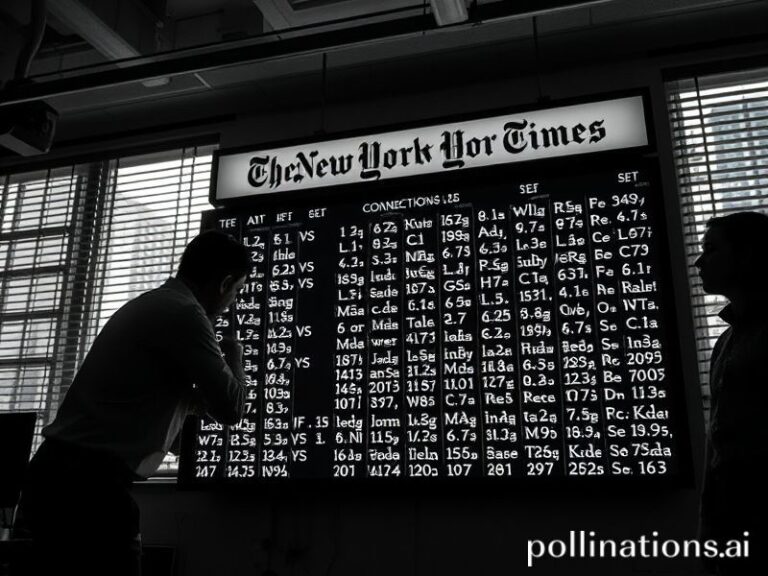colton herta
Colton Herta: The Californian Kid Who Might End Up Driving Europe Mad
By our man in the paddock, still nursing an espresso and existential dread
Monaco, Thursday, 11:47 a.m. – While the rest of the planet argues over the price of eggs and whether democracy is merely a seasonal flavor, a 23-year-old from Valencia, California—yes, the one with the malls—has become the unlikely epicenter of a tectonic argument stretching from Indianapolis to Imola. His name is Colton Herta, and if you haven’t heard it whispered in five languages over the past month, you’ve been reading the wrong propaganda.
Herta, son of ex-IndyCar journeyman Bryan and possessor of hair that looks algorithmically optimized for shampoo commercials, currently pilots the No. 26 Andretti Autosport entry in what Americans insist on calling the “NTT IndyCar Series,” because nothing says speed like a telecommunications conglomerate. The lad has six wins, a fastest lap fetish, and the sort of laconic confidence that makes European team principals loosen their Hermès collars. The problem—if you’re the sort who enjoys problems—is that those wins happened in a championship that still thinks refueling is a personality trait. Formula One, the circus that long ago monetized oxygen, does not award superlicence points for bravery in the Corn Belt.
Cue global uproar. Red Bull, the Austrian-Thai drink mixer with a sideline in carbon-fiber nihilism, sniffed around Herta last autumn as a possible replacement for the chronically unlucky Pierre Gasly. The FIA, motorsport’s answer to Kafka’s Castle, declared Herta 32 superlicence points short—roughly the bureaucratic equivalent of being told you can’t adopt a cat because you once jaywalked. That triggered a debate so tedious it could only be resolved by a Zoom call featuring lawyers, accountants, and Toto Wolff’s perfectly symmetrical frown.
From a cosmic perspective, the quarrel is deliciously absurd. On one side: the United States, a country that views roundabouts as socialist subversion. On the other: Europe, which believes any racing series without a chicane is basically Nascar with better cheese. Between them sits Herta, a millennial Californian who streams his PlayStation races on Twitch and speaks Italian just well enough to order gelato ironically. He is simultaneously a symbol of American exceptionalism and its refutation: yes, an American can hustle a Dallara-Honda at 240 mph through a concrete canyon, but no, that doesn’t mean the old world will hand him the keys to its crown-jewel cars without a notarized apology.
The geopolitical subplot is even richer. Liberty Media, the American conglomerate that bought F1 for the price of a small Baltic nation, desperately wants a U.S. star to wave the stars-and-stripes at COTA and Miami, preferably while Netflix films slow-motion tears. Meanwhile, European purists clutch their Mille Miglia programs and mutter that oval racing is just turning left until bankruptcy. Both camps ignore the obvious: Formula One already has an American driver—his name is Money—and it speaks with a Chase Carey accent.
Yet Herta persists, shaving tenths off lap times like a barber who knows the world is ending but still values a clean fade. If the FIA relents and grants him a superlicence via some tortured “force majeure” clause (translation: we’ve found a bigger sponsor), he will arrive as a walking culture war: the avocado-toast assassin shipped in to redecorate the cathedral. If it doesn’t, he’ll stay in IndyCar, collect more trophies, and watch Netflix recut Drive to Survive Season 6 to make it look like he cried.
Either way, the broader significance is clear. In an era when borders are mainly useful for customs officials and nostalgia, Colton Herta has become a referendum on what counts as legitimate talent. Is greatness measured in passport stamps or brake points? Does heritage matter more than data? And why does every discussion about sport now feel like a proxy war for civilization’s self-esteem?
The lights go green this weekend at Spa-Francorchamps for another F1 round. Herta will be 5,000 miles away, wrestling an IndyCar through the humidity of St. Petersburg, Florida. Somewhere in Milton Keynes, a Red Bull accountant is updating a spreadsheet titled “Plan B.” Somewhere else, a Tifosi is lighting a candle for Mick Schumacher. And somewhere in between, the rest of us are left to wonder whether the fastest driver on Earth is the one we’re watching—or the one the paperwork won’t allow.
As always, the joke’s on us. In the time it took to read this, Herta just set another fastest lap. The world, as ever, is still catching up.







